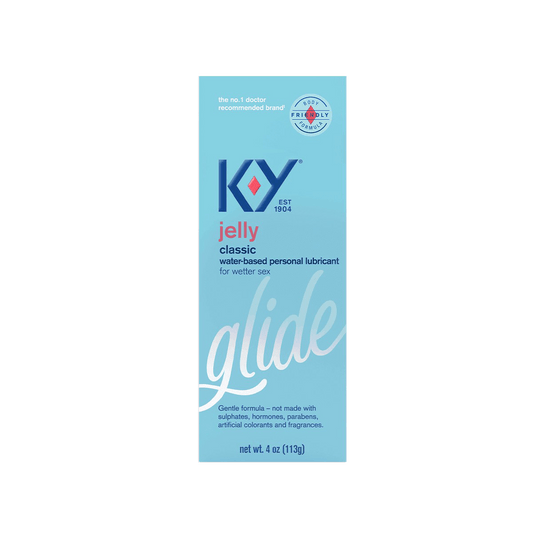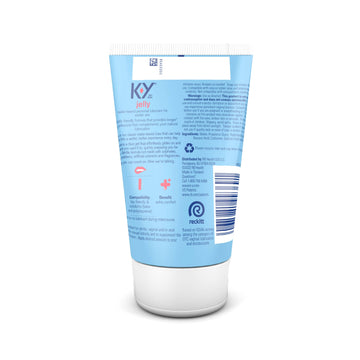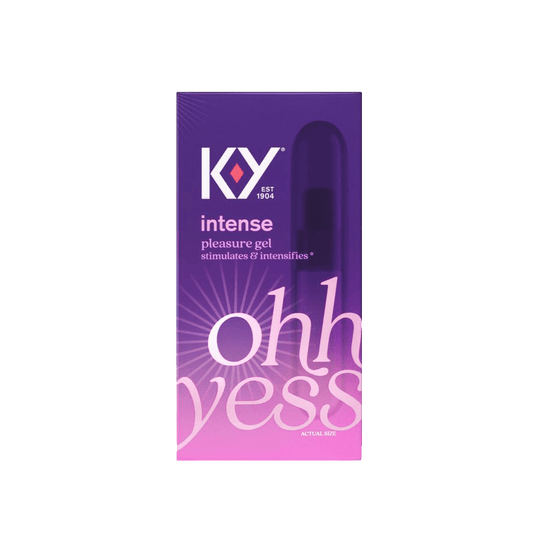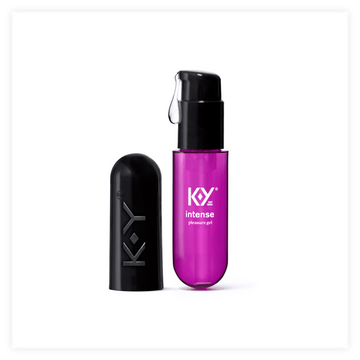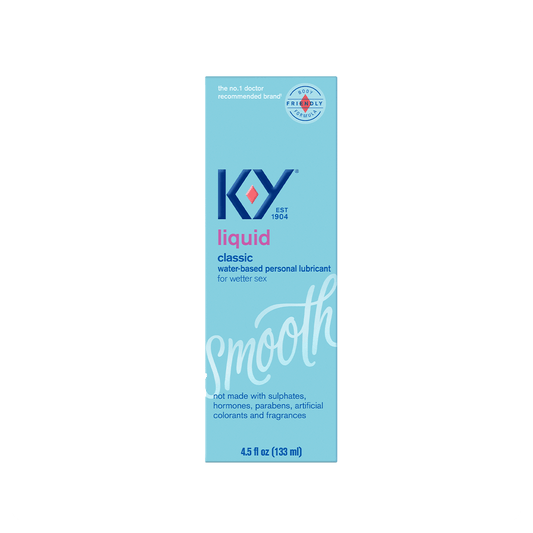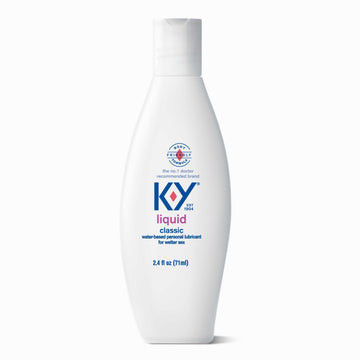A Guide to Menopause Symptoms and Treatment | K-Y
Known as ‘the change’, nearly all cisgender women, except those who have had their ovaries removed before puberty, will experience menopause at some point in their life. While this is a natural process, some menopausal changes can bring anxiety and distress. Whether you are in the early stages of menopause or have been dealing with it for years, this article covers the symptoms, signs, and treatments to take to help relieve menopause symptoms, as well as outlining the best lube for menopausal women. Read on to learn about:
Menopause Symptoms
For most women, the duration and severity of these symptoms vary from woman to woman. With an estimated 6,000 US women reaching menopause1 every day, some women will experience additional symptoms for some time before and after their period's end. The most common changes during menopause include:
• Hot flashes
• Vaginal dryness
• Mood changes
• Reduced libido
• Night sweats
• Difficulty sleeping
Not all women will experience each of these symptoms, some are more common than others and they might only be mild symptoms, or they might be quite severe. And while some women found the symptoms easy to deal with, others experienced difficulty.
To help deal with the physical and emotional changes that menopause can cause, a few simple changes to your lifestyle may help combat these symptoms. Whether you decide to stop smoking, reduce alcohol consumption, maintain a healthy diet and lifestyle, or keep a fan by the bed or on your desk at work, these small changes can play a major role in how you handle the new changes and maintain intimacy after menopause.
What Are the Stages of Menopause?
Menopause is not an immediate condition that happens to the body as it can be defined in three stages: perimenopause, menopause, and postmenopause.
Perimenopause
Not known to most women, perimenopause can cause the menstrual cycle to become irregular, eventually slowing down the frequency of periods a woman has. As a woman's cycle does not fully stop at this stage, most are unaware that they are experiencing early menopause symptoms. Usually affecting women in their 40s, the length of this stage varies from person to person but some common symptoms of menopause can be experienced such as hot flashes. For a small percentage, getting pregnant is still a possibility at this stage.
Menopause
Influenced by hormonal changes, this stage signals the end of the menstrual cycle. Occurring in most women who are in their early 50s, the lack of the body’s production of estrogen and the stored eggs in the ovary decreases, diminishing the chances of conceiving and can affect various aspects of the body.
Postmenopause
Starting after one year of your last menstrual cycle, you may begin to regain your energy, but you may also be at a higher risk for certain conditions. Factors such as medication and lifestyle changes can help reduce some of the conditions associated with menopause. Even if you are in this stage, getting regular check-ups and preventative screening exams are still important.
Treating Menopause
Menopause may require medical treatment. Treatment options focus on relieving symptoms, managing chronic conditions, preventing symptoms that may occur and, in some cases, medication. Treatment may include:
Hormone Therapy
Depending on your personal and family medical history, having estrogen therapy may be an effective treatment option in reducing certain menopausal symptoms such as hot flashes. While long-term use of hormone therapy may have breast and cardiovascular risks, starting hormones around the time of menopause has shown benefits for some women.
Vaginal Estrogen
To help relieve vaginal dryness, estrogen can be administered directly to the vaginal area using a cream, tablet or ring. This treatment option releases small amounts of estrogen which gets absorbed by the vaginal tissues, aiding in the relief of dryness and reducing discomfort.
Lube Options for Menopause
A great alternative to help relieve vaginal discomfort is K-Y Jelly Personal Lubricant. As a water-based lubricant, K-Y Jelly Personal Lubricant is great in easing the discomfort that may occur due to vaginal dryness, a common menopausal symptom, and can enhance your sexlife during this difficult time.
While treatment options can provide relief, you may still experience a couple of symptoms for a period as your body adjusts to the new changes. If symptoms still persist, consider seeing your doctor for further consultation.
FAQ
What is the Average Age of Menopause?
Menopause can happen early, in your 40s, or even in your mid or late 50s. But the average age for women is 512.
What Kind of Lube is Best for After Menopause?
The best personal lube for menopause is exactly that: personal. The good news for you is that K-Y© has a dedicated pick-your-pleasure page that you can peruse to find the best lube for vaginal dryness.
Resources
- National Institute of Health, 2013, The Impact of Menopausal Symptoms on Quality of Life, Productivity, and Economic Outcomes
- Mayo Clinic, 2023, Menopause





